Learning Styles Exploration
TASC Home
TASC Hours and Contact Info
Writing Center
Math Computer Lab
Online Tutoring
Language Arts Lab
Tutor Training
Learning Skills Workshops – Learning Style Inventories
Learning Styles Exploration
All students learn differently and must take into account in their own efforts to learn what ways to approach their studying are best for them . No one can tell you that the method you use to learn is more or less correct than another. Instead, it should be the goal of all students to find what way is most effective and efficient for them to learn the material they need and want to. This can only be done through analysis of how you personally learn. To do this, a number of factors can be considered. They can include the environment you study in, how you approach material, your attention span, who you study with, or even how you look at life in general.
Questions to ask yourself when determining your own best learning style:
– What is my learning style and how does it affect my academic success?
– Is the method of studying that I am currently using working?
– How can I determine my needs and make wise decisions in my studies?
– What things can I change in my environment to make me a more effective student?
Environment:
The environment you work in makes a large difference in your ability to concentrate on the material you are studying. Your environment consists of the following:
Background Noise Level: Different individuals are more comfortable working under different noise conditions. Some like to have background noise such as music or the television to drown out other noises while others require absolute quiet. Take this into account when you are deciding where to study.
Distractions: The frequency and type of distractions that are present can determine a large amount of the studying you are able to accomplish. These could include things such as roommates, television, phones, scenery, food, chores, computers and Internet, etc. While this is not an inclusive list, these are some of the most common distractions. Each individual will have many others that are unique to them.
Familiar Environment: Related to distractions section, it can be truly helpful to learn if you are in a familiar environment (an environment which is not new to you and is comfortable such as a room in your home or residence hall). This allows you to be more relaxed and comfortable in your efforts to study and many times more efficient as well.
Lighting: Many times this simple consideration is overlooked. The brightness and type of the lighting that is in the room you are working in can make a large difference on the ability to keep your eyes from becoming tired. For some, fluorescent lighting can cause eye strain. Consider this carefully and try different lighting to keep your eyes from becoming tired.
Health: The overall health of your body (sleeping, eating, and exercise habits) affects your ability to learn effectively.
Ergonomics: How things are placed around you can affect your overall efficiency and the level of strain that is put on your body.
Time of Day: While many students attempt to study during late hours of the evening, the average person is more effective during daylight hours. This requires time management and the dedication to work during the day instead of the evening.
Attitude Awareness: Don’t let your attitudes about certain classes and subjects affect your study time. If you make up your mind that you don’t like the information or class, you will not remember the material.
Create Pictures/Visualize: The old adage, ‘a picture is worth a thousand words’ is very true in our efforts to study. By creating a mental picture we are many times more readily able to recall or simply describe information in our own words. By creating your own visualizations or looking at pictures of the information, you will be more easily able to remember information.
Make it Meaningful: If information is not meaningful to us we will not recognize why it is important to learn. Before studying material, take the time to recognize why it is important for us to learn. What we learn in our studies affects the rest of our lives in what jobs we can get, how successful we are in our studies, etc.
Psychological factors that make a difference in learning:
Motivation: Motivating yourself to succeed can be one of the largest factors in academic success. Find reward systems to help motivate you to study and get your work done.
Persistence: This becomes most important during periods of high stress or adversity.
Social obligations: Although our social life can become a major hindrance to getting our work done, extracurricular activities are an important part of education as well. It is important to strike a good balance between the two.
Stress: The level of stress that an individual is under can affect their ability to learn effectively. Make sure you have some form of stress relief and practice it regularly. This can come if many forms such as exercise, reading, hobbies, etc.
Types of learning/learners and theories:
Many have broken the orientations of learning into categories. Some popular breakdowns are as follows:
Visual/Auditory/Kinesthetic:
Visual (approximately 65% of the population) – Visual learners relate most effectively to written information, notes, diagrams and pictures. A visual learner typically prefers to take detailed and extensive notes
Auditory (approximately 30% of the population) – Auditory learners relate most effectively to spoken language. They tend to listen to lectures and take notes later, recalling from memory important information or simply recording main ideas. It may help an auditory learner to read information out loud while studying.
Kinesthetic (approximately 5% of the population) – Kinesthetic learners relate most effectively through touch and movement. They learn skills through imitation and practice.
Left Brain vs. Right Brain personalities:
Many theorists in the field have written about the Left Brain/Right Brain theory. The basic breakdowns describe an individual as follows:
Left Brain – Individuals who are highly analytical, respond most often to factual information, and are bounded in concrete rationality.
Right Brain – Individuals who have respond to feelings, are more conceptual or abstract oriented, and respond to holistic patterns and relationships.
Type Breakdowns:
Some have categorized individuals into the following areas:
Analytical vs. Relational
Introvert vs. Extrovert
Intuitors vs. Sensors
Thinkers vs. Feelers
Perceivers vs. Judgers
David Keirsey:
Another orientation that could be utilized to determine learning styles can be found at www.keirsey.com. This follows the orientations originally devised by Myers and Jung in their Four Dimensions. The following areas are considered and analyzed in the Character Sorter that has been developed by David Keirsey: Extroversion and Introversion, Intuition and Sensing, Thinking and Feeling, and Judgment and Perception.
Four reasons why we forget information:
Repression and Amnesia are medically or psychologically linked. Repression is typically linked to a traumatic experience that an individual has blocked out of their memory. Amnesia is typically related to some form of an injury. Although both are reasons why we forget information, they usually don’t explain why we forget what we study.
Decay is the breaking down of information over time. As time passes, it is natural to forget information. This is best fought by reviewing and using information that you have learned. By keeping the information fresh, decay is less able to effect how well you have learned information.
Interference relates to the fact that many times as we learn information there are other things happening at the same time that distract us from learning it properly the first time.
The average person remembers:
90% of what they do
70% of what they say
30% of what they see
26% of what they hear
10% of what they read
50% of what they see and hear
The above table illustrates the need to combine study techniques to be most effective in retaining information. Using active learning tools will help in retaining material.
 TRCC EXTRANET
TRCC EXTRANET




